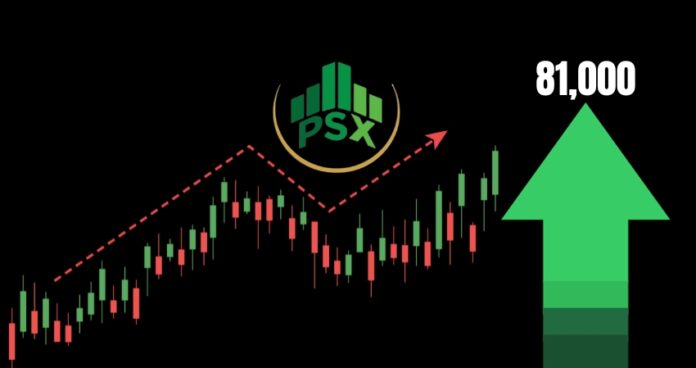The Pakistan Stock Exchange (PSX) is expected to witness a strong rally in the next 13 months, reaching 81,000 points by December 2024, Arif Habib Limited (AHL), a leading brokerage firm, said in its recent report.
The report, titled ‘Pakistan Strategy 2024 – Targeting 81,000; Resilience and Redefined,’ attributed the bullish outlook to political stability, economic recovery, robust corporate earnings, attractive stock valuations, and ample domestic liquidity.
The PSX has already recorded a remarkable performance in the past five months, surging 55% to a new all-time high of 62,493 points on Monday. The index has also outperformed its regional and global peers, delivering a 45% return in the calendar year 2023 to date.
The report stated that the PSX was still significantly undervalued, trading at a price-to-earnings ratio of 4.2, a 29% discount to the last five-year average of 5.9. The market capitalisation to GDP ratio of the PSX was also low at 8.8%, a 26% discount to the last five-year average.
One of the key drivers of the market rally was the announcement of the date for the general elections in the country – February 8, 2024. The report said that the timely elections and the arrival of a freshly elected government would usher in an era of political stability and economic reforms, which would boost investor confidence and sentiment.
The report also projected a positive macroeconomic scenario for the country, with GDP growth rebounding to 3.3% in FY24, inflation easing to 24% by June 2024, current account deficit narrowing to 1.1% of GDP in FY24, and rupee stabilising against the US dollar.
The report anticipated that the State Bank of Pakistan (SBP) would adopt an accommodative monetary policy stance, starting from the first quarter of CY24, and cut its key policy rate by 7 percentage points to 15% by December 2024. This would stimulate economic activity and spur demand for credit and investment.
The report identified key sectors that would benefit from the improving macroeconomic and market conditions, such as banking, cement, fertiliser, oil and gas, power, and steel. It also highlighted the potential risks that could derail the market rally, such as global and local macro and geopolitical uncertainties, rising commodity prices, political instability, and aggressive structural reforms.




